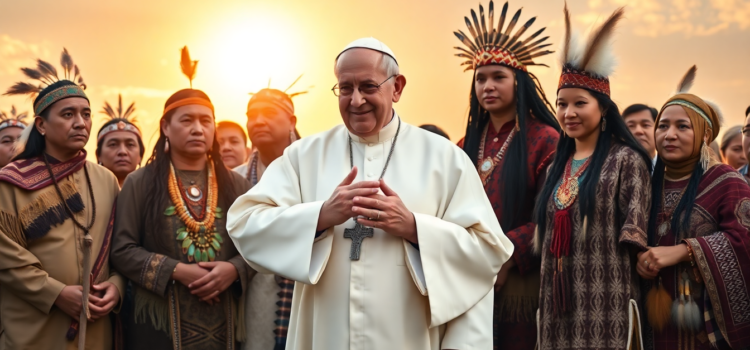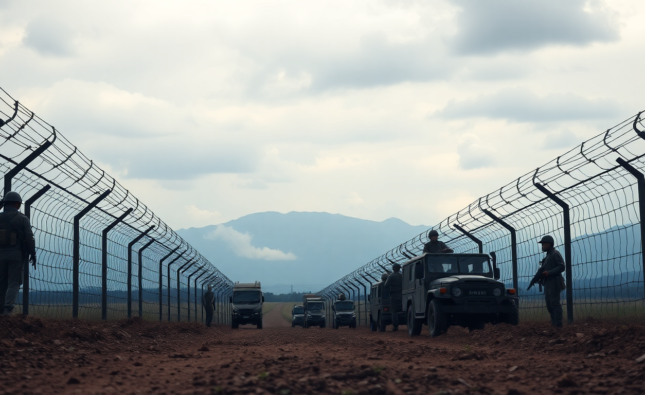
Pope Francis’s Legacy: Reconciliation and the Historic Apology to Indigenous Peoples
Introduction
In the landscape of global religious dialogue and reconciliation, Pope Francis has emerged as a pivotal figure in addressing historical wrongs. His historic apology to Canadian Indigenous peoples in 2022 marked a significant milestone in healing the wounds inflicted by the Catholic Church’s role in residential schools. This article explores the broader implications of this apology and Pope Francis’s commitment towards reconciliation and healing.
The Papal Apology: A Significant Step Towards Healing
In 2022, Pope Francis delivered a moving apology to leaders of Canada’s Indigenous communities, acknowledging the Church’s role in operating a majority of the country’s residential schools. Responding to the Truth and Reconciliation Commission’s call from 2015, his apology was not only a personal expression of contrition but also a direct acknowledgment of the intergenerational trauma suffered by Indigenous peoples.
The impact of this gesture was profound. Leaders such as Chief Gerald Antoine of the Assembly of First Nations accepted the apology as a pivotal moment for reconciliation efforts. For many, this apology served as a cornerstone for the renewed dialogue between the Catholic Church and Indigenous communities, highlighting the importance of accountability and genuine remorse.

Reconciliation as a Central Theme of Pope Francis’s Papacy
Pope Francis’s commitment to reconciliation spans beyond this single act of apology. L’s overarching aim has been to foster unity and healing within the Catholic Church and across religious divides. His continuous calls for dialogue have not only targeted the relationship with Indigenous communities but also urged reconciliation between Catholics and Orthodox Christians, demonstrating his focus on overcoming doctrinal differences.
- Increased engagement in the Sacrament of Reconciliation, with anecdotal reports indicating a rise in participation by over 25% in some dioceses.
- Calls for reconciliation in global conflicts, exemplified by his appeals for peace in Ukraine.
The Challenges and Opportunities in Implementing Reconciliation
While the papal apology has been a significant step, challenges remain in moving from acknowledgment to meaningful reconciliation. Surveys indicate that while the “Francis Effect” is visible, with 75% of U.S. Catholics viewing him favorably, the participation in regular religious practices such as confession remains low. The path towards full healing is complex, requiring continued dialogue and action from both religious institutions and governmental bodies.
Understanding the legacy of Pope Francis within this context involves recognizing both the symbolic and practical efforts he has made towards healing the Church’s colonial past and ensuring that Indigenous voices are integral to this journey.
Conclusion
Pope Francis’s apology to Indigenous peoples is one piece of a broader tapestry of reconciliation efforts that define his papacy. It acknowledges past wrongs while paving the way for healing and unity among diverse communities. By continuing to advocate for truth, peace, and dialogue, Pope Francis is carving a global legacy of reconciliation that transcends borders and faiths. Readers are invited to reflect on these efforts and engage in personal acts of understanding and compassion.
Call to Action
L encourage readers to share this article, delve deeper into the topics of Catholic Church reform, and contribute to ongoing discussions around reconciliation and accountability. Subscribe to our newsletter for more articles on transformative religious movements and global reconciliation initiatives.










Comments